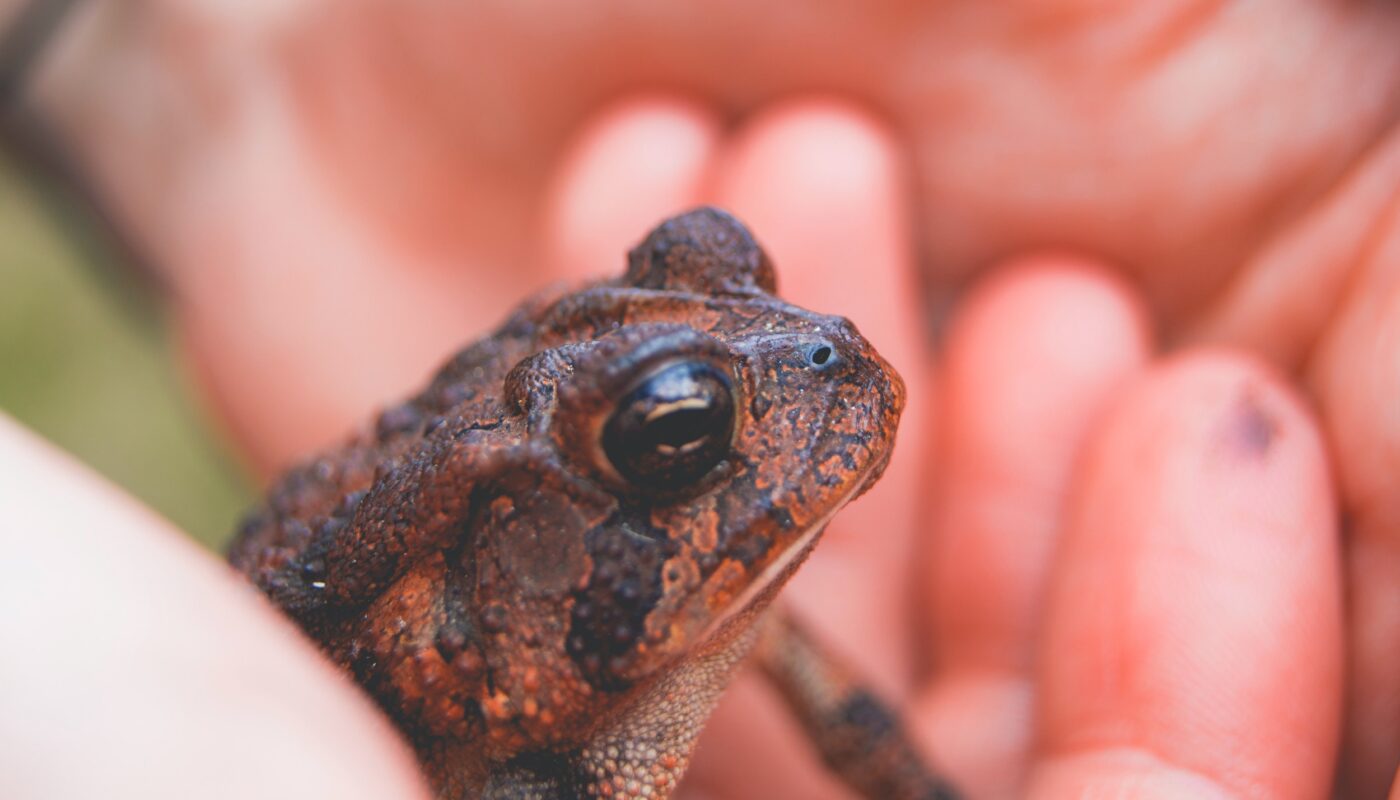When I was a child, I was fascinated by the creatures on our modest piece of land in outer suburbia and often caught small garter snakes, bees, fireflies, slippery frogs, and bumpy toads for my menagerie. The latter would excrete in my hands and once or twice I was bitten by a snake, carelessly grabbed by the tail. Bee stings were frequent. I developed a sort of immunity to them after trapping so many bees in my hands before transferring them to jars.
As a teen, independent of my toad-handling, over twenty warts developed on my hands. Embarrassed, I often walked with them stuffed into pockets or stood with hands folded behind my back. I knew, of course, that no girl would ever want to hold these hands or be touched by them. Fortunately, the warts eventually responded to treatment, and they all disappeared without leaving even the smallest of scars. Today, when I look at these hands, I can almost feel one or two warts, the prominent one, for example, at the base of my left pointer finger that I used to rub obsessively with my thumb in hopes of scrubbing it away.
My hands did not escape childhood unscathed. A thin white scar, nearly an inch long, blends into the skin on my forearm, near my right wrist, but I cannot recall its cause, unlike the smaller one above it in the center of my palm. The result of a childhood mishap with a toy airplane propeller.
These hands are nearly identical to my father’s, a fact that used to bother me. Like many young men wanting to assert their independence, I did not want to be like him. Yet every time I looked at my hands, ran soapy water over them, or grasped a pencil, there he was, making his presence felt. We both have prominent superficial veins along the back of our hands, and significant wrinkles line the knuckles on fingers of similar shape and size. Sadly, his hands and fingers are now misshapen, ravaged by years of severe arthritis, while my arthritis, currently, is strangely confined to a swollen and sore joint on the pointer finger of my right hand.
After my first wife and I divorced, I developed severe pain in both hands. My doctor ordered x-rays and later showed me the scans, the ghostly images of white bone against a black background, declaring that I had a narrowing of the cartilage at my joints, between the proximal phalanges and medial phalanges on several fingers. I worried my hands would even resemble my father’s hands in their gnarled state but, fortunately, they responded to exercise and a change in diet. Most of the pain went away. For a time.
My father has the hands of a craftsman, a builder, and he spent his best years repairing roofs with the eponymous company he started and putting out fires with the fire department in a university town. I wanted my hands to be tough like his, abrasive, rough, and dirty. Strong hands with black fingernails from roofing tar and wayward hammers. I wanted to learn how to craft something beautiful, something useful with these hands that were made in his image. But he did not have the patience to teach me. And neither of us had the tolerance for my failures.
Rather than carve wood or mold clay, my hands most often can be found turning the pages in a book, crafting sentences into stories with a pen, or pressing the keys on a laptop while editing a manuscript. My father, it has seemed to me, thinks little of this way of making a living. There are no callouses on my fingers, no dirt under my nails, no obvious signs of effort. Despite this, one can still try to follow the admonition of the writer of Ecclesiastes: “Whatever your hand finds to do, do it with all your might.”
To be honest, I don’t always follow that exhortation. In fact, these hands have not always been used for good. They have been quick to clench, have been tempted to strike others, or curse with a gesture. They have been slow to extend help. They have been slow to offer everything in thanks—my gifts, my weaknesses, my successes and failures.
My son has hands like mine. Hands like his grandfather. And, like his grandfather, he is skilled with his hands, is always building and designing something, and will likely be a craftsman, too. I enjoy holding my son’s hand when he will allow it and on occasion, he still grabs my hand when our family enjoys a walk in the neighborhood.
Sooner than I like to admit, my hand will clasp my father’s strong but disfigured hands for the last time. I’ll squeeze just hard enough to let him know I’m there and at the same time, I’ll think of my son’s hands and how he, too, in the not-too-distant future will lovingly reach out a final time for mine.
Photo by Timothy Dykes on Unsplash.
D. David Hayes
D. David Hayes founded and edited a men’s lifestyle magazine and a journal of European literature and art. His work has appeared in the Washington Post and elsewhere, and a short play won the “Spectacular Tournament of Playwrights” at the Acorn Theatre. Hayes is the Executive Director of an arts nonprofit in Michigan and coordinates their art gallery space and annual film festival.
